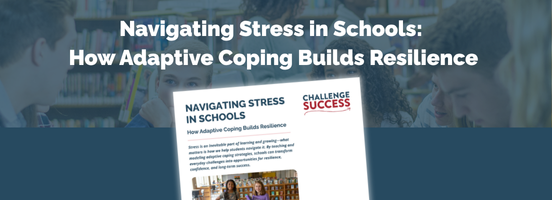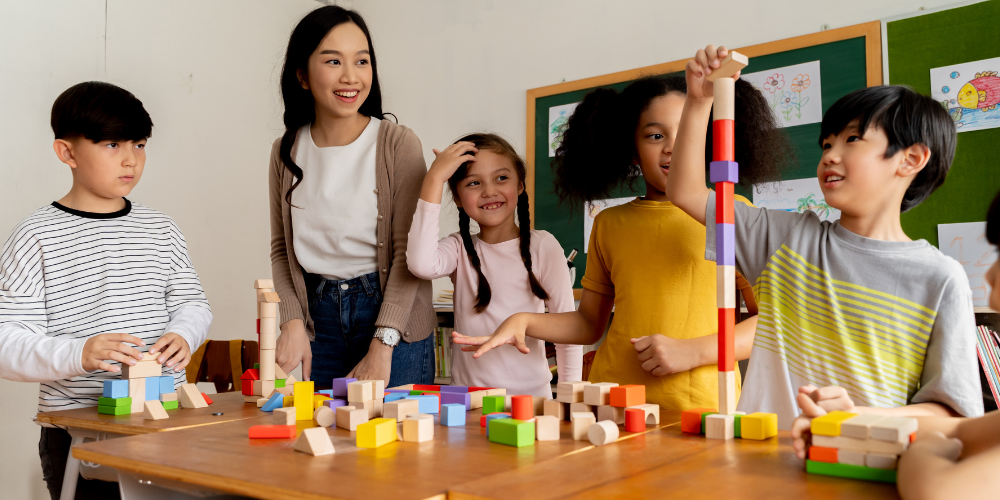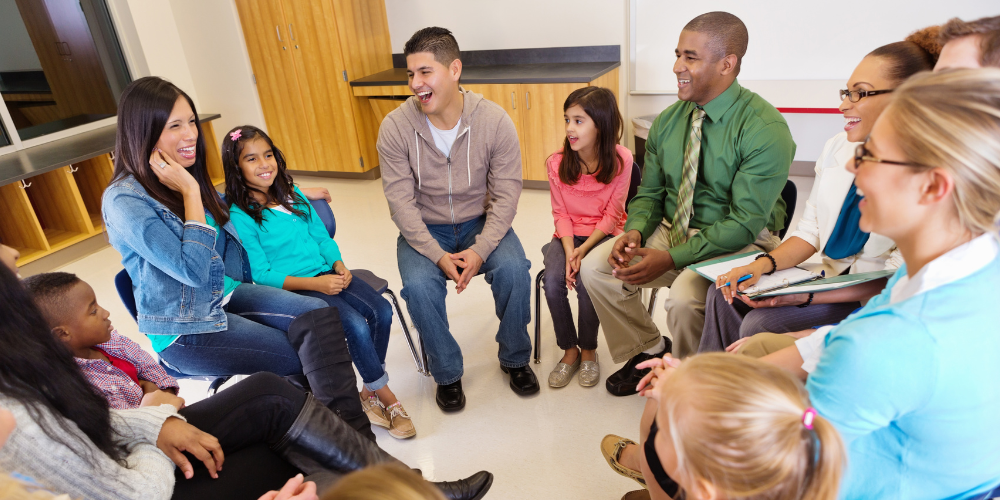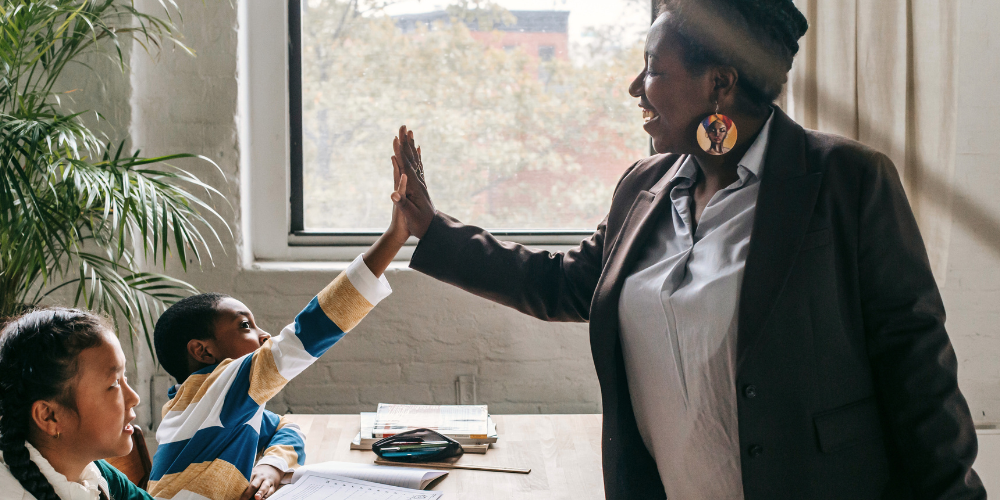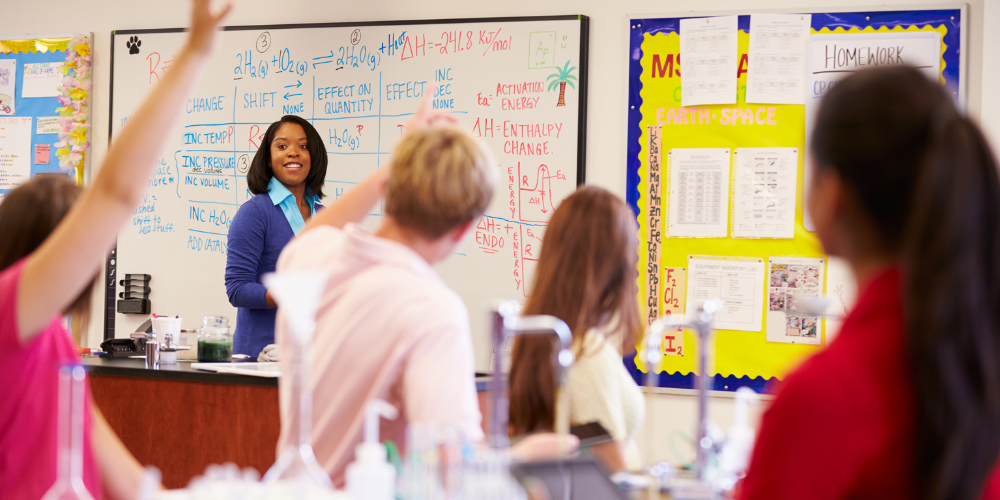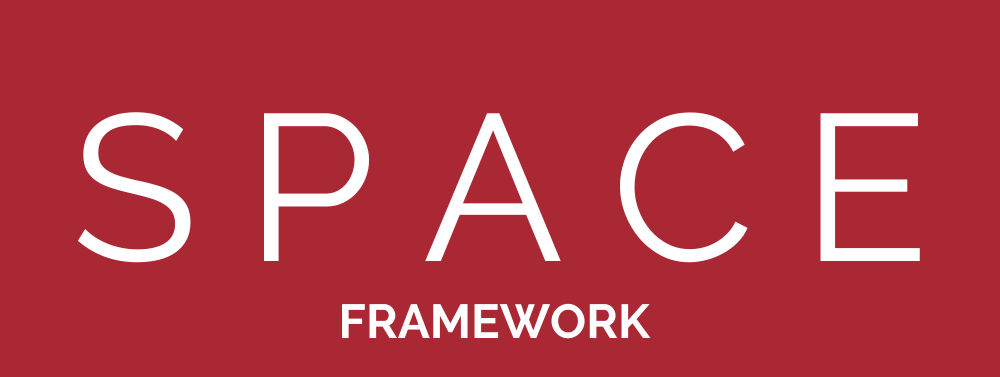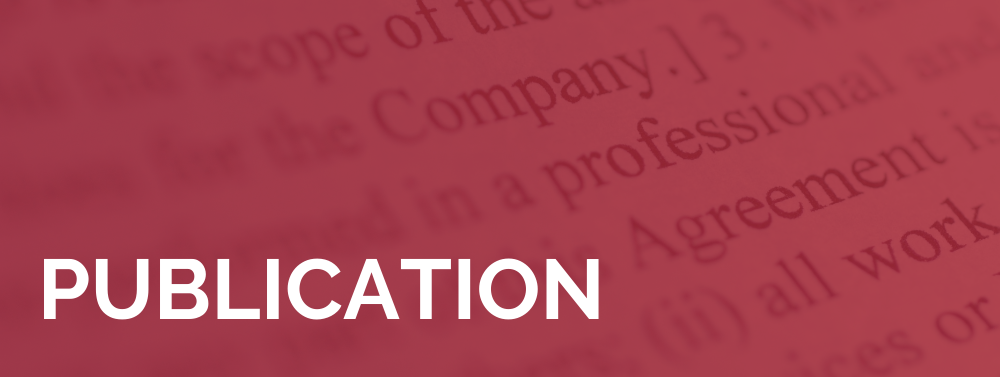SPACE Framework for School Change
At Challenge Success, we have organized our research-based, equity-centered strategies into a framework we call S.P.A.C.E. Each letter stands for an element of the K-12 student experience: Supportive Schedule and Use of Time; Pedagogy That Engages; Alternative and Authentic Assessment; Climate of Care; and Education for Everyone.
This framework embodies our vision to create educational systems that value each student for their unique identities, assets, and individual definitions of success and effectively prepare them for the variety of opportunities and challenges they will encounter in school and beyond. We have identified five categories of change that contribute to positive outcomes in student well-being, belonging and engagement.
Within these categories, we strive to curate policies and practices that live into our equity commitments. Many of these strategies emerged from our partner schools communities, while others stem from research on best practices for effective schools (for examples, see Darling-Hammond, 2001; Learning Policy Institute’s Whole Child Education; and the University of Chicago Consortium on School Research). We acknowledge that these offerings are not an exhaustive list and are not intended to be prescriptive. When we work with schools, we employ a co-design approach and encourage each school to use the framework in a manner that is most responsive and authentic to the unique assets, needs, and values in their community.

Supportive Schedule & Use of Time
Revise school schedules (including late start days, modified block, full block, or trimester schedules) to align with evidence of the conditions under which youth learn best – prioritizing adequate time for sleep, reflection, and connection.
Align the pace of the school day with learning and brain sciences, for instance, ensure that the cadence of class time (optimal times to learn) takes advantage of how we know that students learn best.
Ensure that transition time between classes is adequate so that all students and faculty/staff have time to get their physical needs met as well as to mentally transition from one activity/topic/content area to another.
Align policies and practices around schoolwork done outside of class time to ensure the purpose is clear and the volume is appropriate and necessary for learning for all students. Doing so helps to ensure that all students have time in their days to address the wide-range of youth developmental needs such as, to pursue interests outside of school, and to spend time with friends and family.
Pedagogy That Engages
Diversify teaching strategies to include student-centered, rigorous project- or problem-based learning as part of each unit.
Ensure curriculum and assignments are culturally responsive and sustaining by incorporating content and using approaches that build on student assets and address complex questions that are important to the community.
Develop assignments that allow for more student choice and personalization.
Connect and build curriculum around students’ identities, backgrounds, and experiences.
Offer opportunities for students to make meaning and connections from content individually and in groups.
Communicate high expectations with care and appropriate support to all students.
Create opportunities for students to exercise shared-decision making, strengthen relational agency, resolve conflict, and collaborate on authentic and relevant topics.
Alternative and Authentic Assessment
Use multiple forms of assessments in each unit that are aligned with the learning goals and incorporate an emphasis on student assets, including performance-based assessment approaches that support student autonomy and agency.
Create healthy stakes for summative assessment by focusing on the collection and curation of evidence of student mastery and understanding rather than relying on single high-stakes assessments.
Incorporate different ways of providing student feedback such as, allowing students to self- and peer-assess.
Minimize negative effects of grading on student motivation and learning through adjustments such as narrative assessment, unweighted GPAs, the elimination of student rankings, and finding ways to grade less.
Increase formative assessments and on-going feedback in order to support instructional decision making and student improvement.
Ensure your classroom assessment and grading policies are fair and equitable and encourage student feedback on these policies for instance, eliminate “zero” policies.
Climate of Care
Implement systems, structures, and routines that support student social and emotional learning, productive communication, problem-solving, and collaboration skills, such as advisory, identity-based groups, internships, home visits, and community circles.
Incorporate opportunities for students to develop agency and advocacy skills, such as including students in school-wide decision-making.
Incorporate a restorative justice approach that supports a trauma-informed and healing-oriented environment, such as de-escalation practices, management of conflict and emotions through dialogue and reparation of harm, and routines for self-regulation.
Foster culturally responsive and inclusive policies and practices through which all students feel safe, seen, and supported, such as co-developing community agreements and rituals, incorporating community assets (e.g. multilingual capital, oral stories and traditions) and leveraging culturally diverse resources.
Embody “warm demander” stances by maintaining high expectations and confidence in student successes, engaging in asset-based mentorships, establishing mutual respect and trust, and practicing regular 1:1 check-ins that affirm, offer emotional support, and encourage productive struggle.
Education for Everyone
Sponsor interactive, research-based professional development workshops for faculty on the science of learning, equitable assessment and grading practices, and culturally responsive and sustaining teaching practices. Implement appropriate structures to sustain adult learning in the future.
Engage in culturally-relevant family education to share and discuss the latest research on student well-being, belonging, and engagement in learning and address how families might support these areas including, but not limited to, sleep education and time management tools.
Throughout primary and secondary schooling, use research-based evidence to debunk the myth that there is only one path to success in life. Educate students and families on the variety of post secondary pathways and provide them access to tools that allow them to have multiple high quality choices that are a good fit for each student.
Build on each school community’s assets by inviting families and school staff as guest speakers, incorporating family or cultural perspectives, or bringing in family members’ professional experiences to support classroom needs.
Demonstrate the value of all families’ identities with strategies such as having translators to support parent/caregiver education programs, providing materials in students’ home languages, and using beginning of the year questionnaires or conversations to understand family assets, challenges, and lived experiences.
